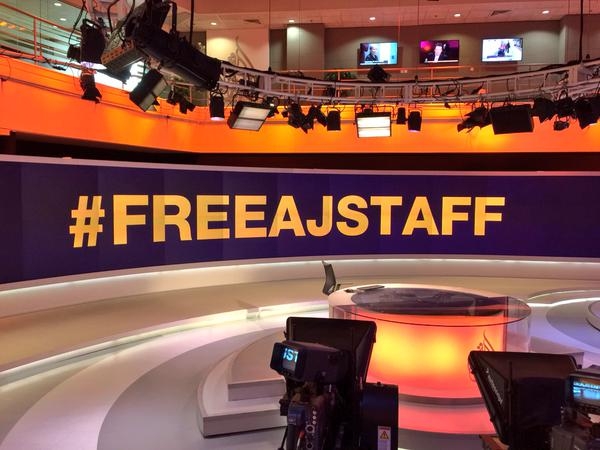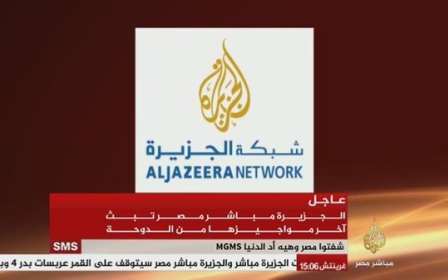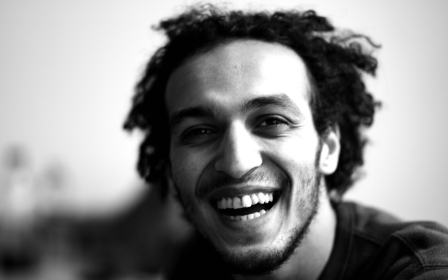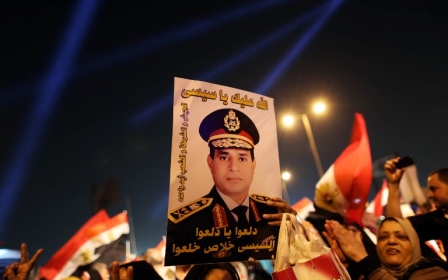Al-Jazeera journalists mark one year in Egyptian prison

Three journalists marked their first year in an Egyptian jail on Monday, ahead of their appeal date on 1 January 2015.
Baher Mohamed, Mohamed Fahmy and Peter Greste were detained on 29 December 2013 and later handed jail terms of between seven and 10 years on charges including broadcasting false news, threatening Egypt’s national security and aiding a “terrorist organisation.”
The three men, who all worked for Qatar-based satellite channel Al-Jazeera, were arrested when police raided Cairo’s upscale Marriott hotel, where the channel had set up a makeshift news-room.
Weeks after their arrest a police video showing the raid was broadcast on Egyptian television, with the reporters described as members of the “Marriott terror cell.”
Baher Mohamed, an Egyptian national and producer with Al-Jazeera, had previously worked for a Japanese news organization, The Asahi Shimbun.
Peter Greste, a dual Australian and Latvian national, used to work with the British Broadcasting Corporation, and had spent only a few days in Egypt at the time of his arrest.
Mohamed Fahmy, a Canadian citizen of Egyptian descent, previously worked for CNN, The Los Angeles Times and The New York Times.
In court Fahmy described himself as “a liberal,” saying that he had taken part in June 2013 protests calling for the resignation of President Mohamed Morsi of the Muslim Brotherhood in June, 2013.
‘Sombre Christmas’
Speaking at a news conference in Australia on Monday, members of Greste’s family said the 49-year-old was “anxious” in the run-up to his appeal, due to be heard on 1 January.
The family, which had a “sombre Christmas,” said they were pinning their hopes on Egypt’s legal system.
President Abdel Fattah al-Sisi has previously said the three can only be granted a presidential pardon after the judicial system had run its course.
However, Greste’s two brothers appeared optimistic about the prospects for his release, after Sisi told France24 in November that he was considering a presidential pardon for the journalists.
“If I had been president at that time, I would have decided…that the journalists would have to be expelled,” the leader said.
“The issue is currently under discussion so that we may find a solution.”
Sisi has consistently refused to intervene in the country’s judicial system, which he has insisted is “completely independent.”
However, many have questioned whether the journalists’ arrest could be linked to their work with Al-Jazeera, the Doha-based channel long accused of supporting the Muslim Brotherhood.
In a letter smuggled out of his prison cell, Fahmy said his arrest and that of other media workers in Egypt is due to their being "caught up in a web of coalitions and governments in the Middle East who can't seem to agree on who the terrorists are."
"We are victims of a real ongoing cold war between Egypt and Qatar."
Human Rights Watch called the arrest a “miscarriage of justice” – deputy Middle East director Joe Stork said that “sentencing three professional journalists to years in prison on the basis of zero evidence of wrongdoing shows how Egypt’s judges have been caught up in the anti-Muslim Brotherhood hysteria fostered by President al-Sisi.”
Thaw in Egypt-Qatar relations
Relations between Egypt and Qatar have recently improved somewhat, with the Gulf State announcing its “full support” for Sisi’s Egypt after the President met with the Qatari envoy in Cairo in late December.
In a landmark move, the Al-Jazeera network last week announced its decision to close its Egypt-focused channel, Al-Jazeera Mubasher Misr.
The channel had been operating from the Qatari capital for some 18 months, since its Cairo offices were closed in July 2013 after the ousting of then-President Mohammed Morsi, a member of the now-banned Muslim Brotherhood.
Moves towards reconciliation have raised hopes that the three Al-Jazeera journalists could be released imminently - Australian Foreign Minister Julie Bishop said last week that she is "mildly, mildly optimistic" that Greste could be freed.
However, thousands remain imprisoned – rights groups say the prison population has grown by 16,000 since the 2013 takeover by then-Defence Minister Abdel Fattah al-Sisi and the ensuing crackdown on the Muslim Brotherhood.
At least 12 journalists are currently detained in Egypt.
Photographer Mahmoud Abou Zeid has been held for more than 500 days without charge – he was arrested with two other journalists while covering the bloody dispersal of sit-in camps outside Cairo’s Raba’a Mosque, during which hundreds of protesters were killed.
In a letter sent from his prison cell last week, Zeid wrote that "the world has declared a war against terror, but there is little condemnation of the human rights abuses, arbitrary detentions, violent deaths, mass trials and sentencing, all of which have been sanctioned by the Egyptian authorities."
Middle East Eye propose une couverture et une analyse indépendantes et incomparables du Moyen-Orient, de l’Afrique du Nord et d’autres régions du monde. Pour en savoir plus sur la reprise de ce contenu et les frais qui s’appliquent, veuillez remplir ce formulaire [en anglais]. Pour en savoir plus sur MEE, cliquez ici [en anglais].




